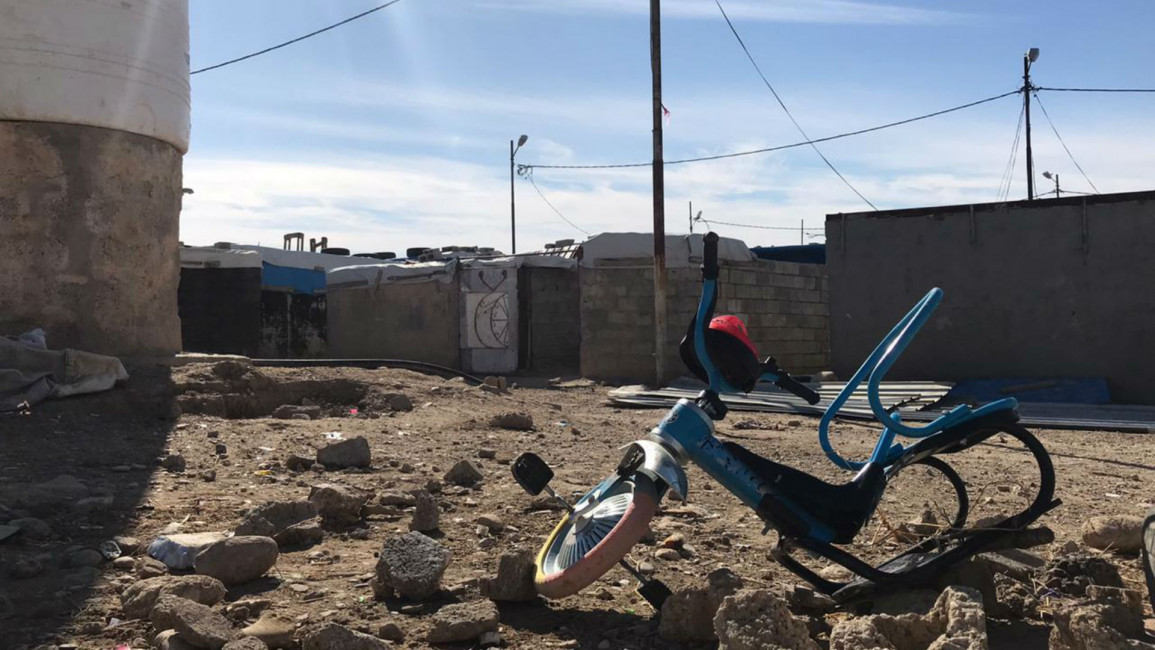'Thousands' of Iraqi refugees faces abuse, stigmatization over perceived IS links: Amnesty
Thousands of Iraqi refugees face abuse and stigmatisation at the hands of Iraq's authorities for their perceived ties to the Islamic State group, as the government moves ahead with camp closures, a new report by Amnesty International has found.
Internally displaced peoples (IDPs) have been denied documentation essential for employment, education and free movement, according to the report, over their own or their relatives' suspected former allegiances to the self-styled caliphate, which Baghdad officially defeated in 2017.
Security forces at civil status directorates routinely harass and intimidate them, the report says, leaving camps in which they live the only option for safe shelter, all of which are set to be closed by Mustafa al-Kadhimi’s government by March 2021.
Lynn Maalouf, Amnesty International's Deputy Regional Director for the Middle East and North Africa called on the Iraqi authorities and the Kurdistan Regional Government to address the "continuing collective punishment of IDPs with perceived links to IS" as an integral part of any plan to close camps.
Twitter Post
|
"Iraq's authorities must guarantee that no one is punished for the crimes of others: that all Iraqis can obtain civil documentation: and that the whereabouts of those disappeared is revealed", Maalouf said in a press release issued by the rights group.
Based on research carried out between 2018 and 2020, including at IDP camps, Marked For Life: Displaced Iraqi in cycle of abuse and stigmatisation has documented the cases of 67 individuals arrested for suspected ties to IS and subject to enforced disappearance.
Tarnished with association, those acquitted of affiliation to the group live in fear that Iraq's state and para-state authorities, include the Iran-backed Popular Mobilisation Forces (PMU), could rearrest them or subject them to torture on their return to their homes.
"In Iraq, nothing is bigger and more dangerous than someone calling you Daeshi [IS member]. One word and you're gone. I used to have hope for a normal life. But now there are red sniper dots on all of us,” said one former detainee, released due to a lack of evidence by Iraq’s autonomous Kurdish government after three years.
The rights group has called on Iraq to investigate all cases of enforced disappearances and bring the perpetrators to justice, as well as "immediately bringing to an end the practice of torture and ill-treatment".
It expressed "serious" concern about the authorities' failure to conduct trials of IS suspects in line with international standards.
Iraq has closed several camps across the country, including Ninewa and Karbala camps in Baghdad, putting at risk thousands who end up in precarious shelters or return to their areas of origin fearing their safety.
Read more: Nowhere to go: Iraq's IDP camp closures leave thousands destitute
Follow us on Facebook, Twitter and Instagram to stay connected



